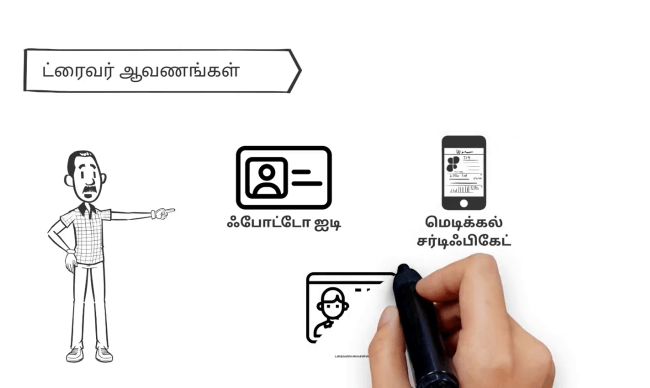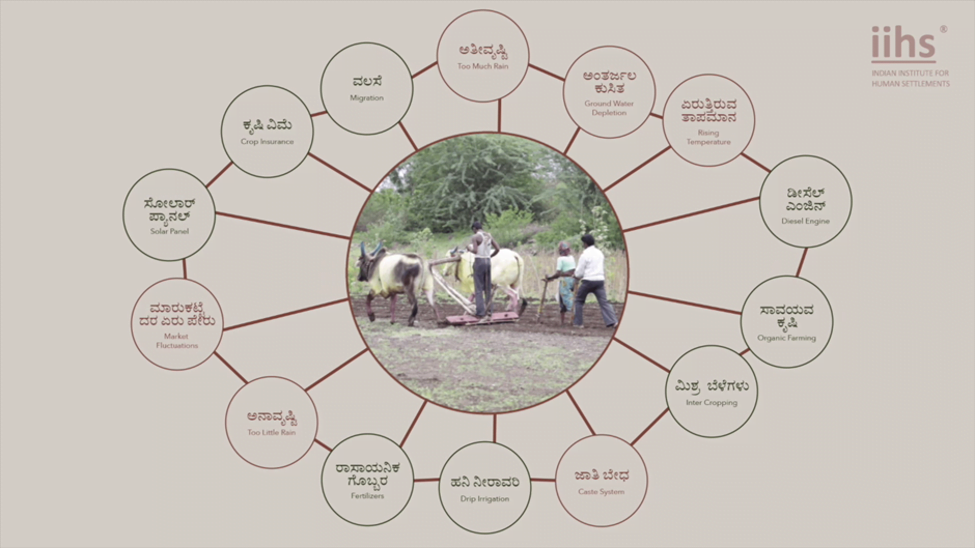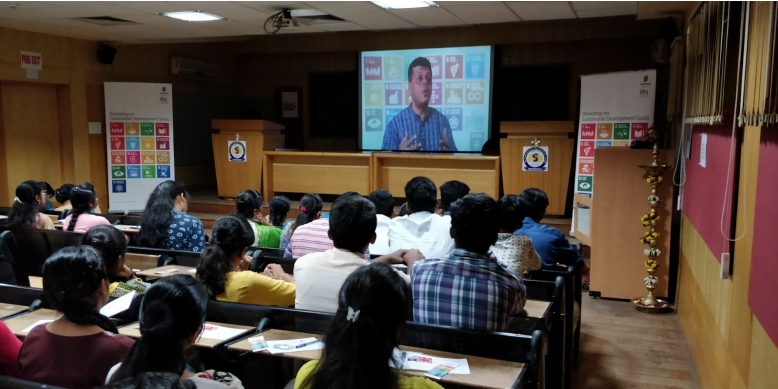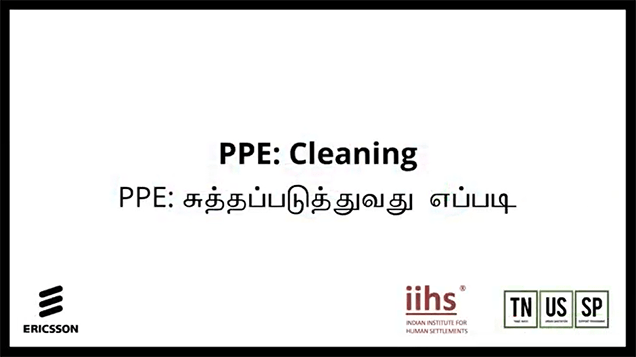The DBL Programme supports the various teaching and capacity-building initiatives of IIHS through regular workshops for academics and identifying the right tools, systems and platforms for deploying effective and engaging blended learning.
Micro Learning
Capacity Building for Officials of Urban Local Bodies in Tamil Nadu (English and Tamil)
The IIHS-led Tamil Nadu Urban Sanitation Support Programme (TNUSSP) offers capacity building training to the officials of Urban Local Bodies (ULBs) across the state of Tamil Nadu which was converted into digital learning content modules.
These modules covered topics ranging from an introduction to the full cycle of sanitation to the regulatory aspects of faecal sludge management.
The DBL team along with the Media Lab and the Design teams at IIHS have created animated videos, whiteboard animations, interviews with subject matter experts and self-paced interactive learning material which has been shared with and utilised for sessions to officials across ULBs in Tamil Nadu.

Climate Resilient Development Pathways (Kannada)

IIHS has been involved in the research project around Climate Resilient Development Pathways (CRDPs) in collaboration with a few other partners. As a part of this project, research was conducted between 2015-17 in Kalaburgi (a.k.a Gulbarga) and Kolar districts in Karnataka. These districts fall in the semi-arid climate zone.
825 agrarian households from these two project sites were included in this study. The research aimed at gaining insights on the challenges faced by the farmers of this region – climate change risks as well as other challenges of non-biophysical origin such as caste and gender-based barriers, which compound their hardship. The study also tried to understand the responses chosen by individual farmers, local institutions, NGOs and finally some of the state-led initiatives.
Findings from this research inform us on the responses that may improve the generic capacity (socio-economic) of people, the responses which may enhance specific climate-risk-management capacity and those which may turn out to be maladaptive response strategies in the long run.
The output from this research had been documented predominantly in English in the form of white papers. This knowledge has now been summarised and developed as short videos in the local language, Kannada. These videos will be used to engage in advocacy dialogues with the policymakers of the region.
Sustainable Development Goals (SDG) Workshops for School and College Students

IIHS collaborated with Ericsson India Global Pvt. Ltd. in 2019 to design and deliver a pilot initiative aimed at educating school and college students in India about the United Nations’ Sustainable Development Goals (SDGs), relevant to the local context, and initiating action-oriented thinking towards the achievement of SDGs. As part of the initiative, the DBL Programme designed and produced multiple videos on the SDGs, which were the centrepieces of workshops delivered in schools and colleges in Bangalore, New Delhi and Gurgaon. The workshops also involved group discussions, activities and debates and project ideation that yielded 45 project ideas from students. More than 200 students and around 35 teachers benefited from these workshops that were conducted in March 2019.
Personal Protective Equipment for Sanitation Workers in Tamil Nadu
In collaboration with Ericsson Global Services, India (Ericsson), IIHS initiated the provision of Personal Protective Equipment (PPE) kits to over 4,300 sanitation workers across 13 Urban Local Bodies in the state of Tamil Nadu between December 2020 and January 2021.
The Government of Tamil Nadu along with the Tamil Nadu Urban Sanitation Support Programme (TNUSSP) team identified the various components of the PPE kit while the DBL and Media Lab teams at IIHS designed and produced a set of videos to train the sanitation workers on the effective practices of PPE use, maintenance and disposal, together with awareness around general health and social welfare topics amongst the sanitation workers and their families.




